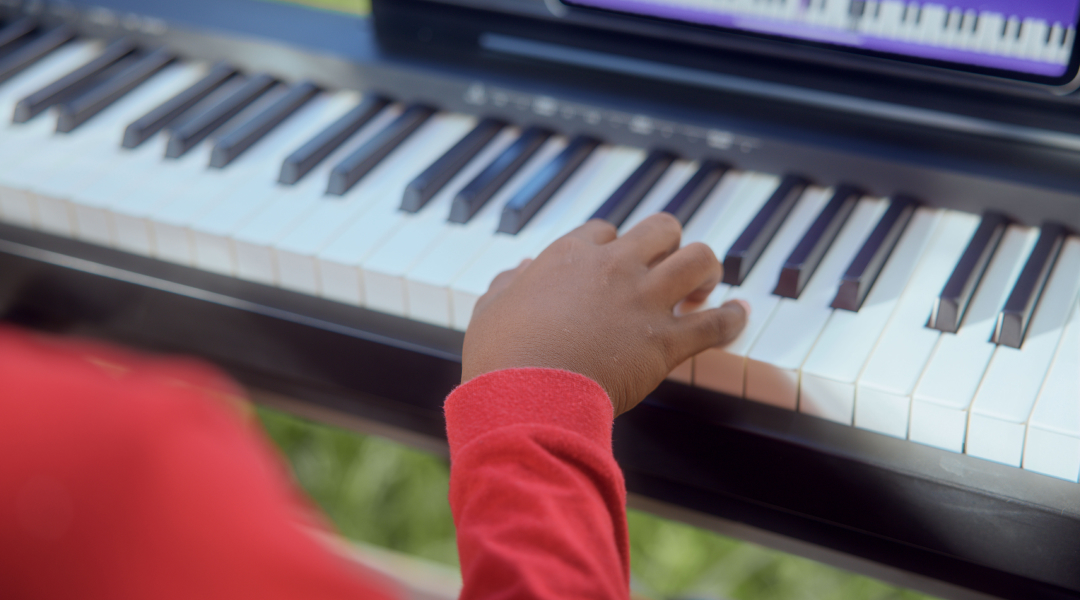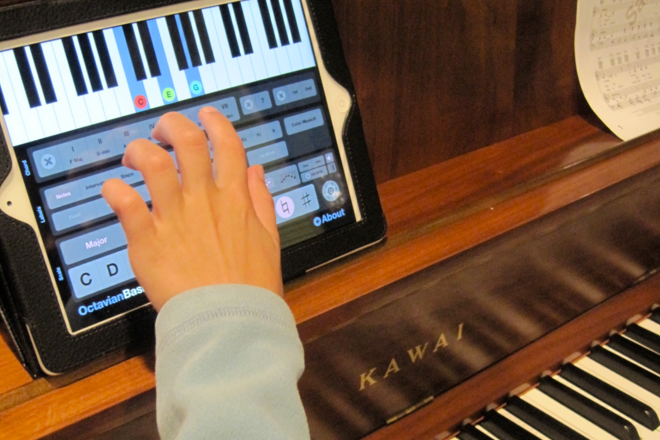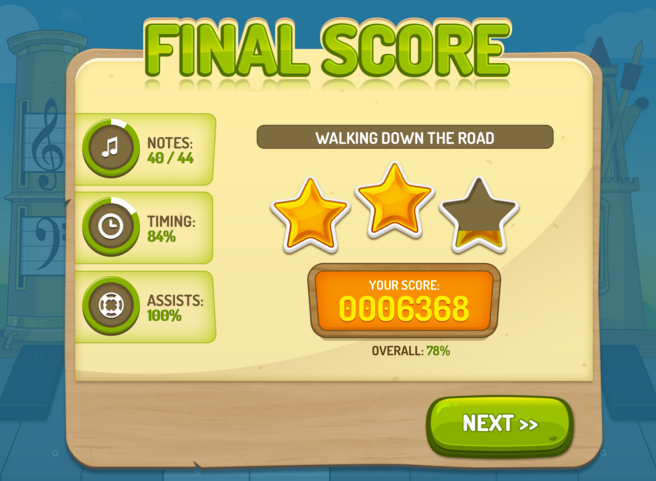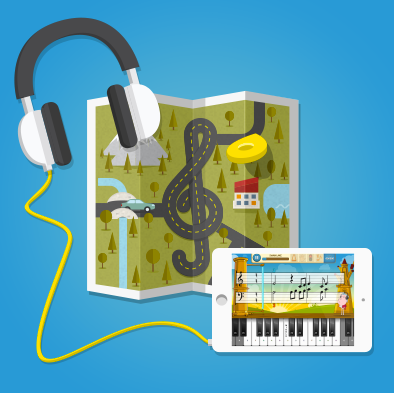Digital Piano vs. Acoustic Piano
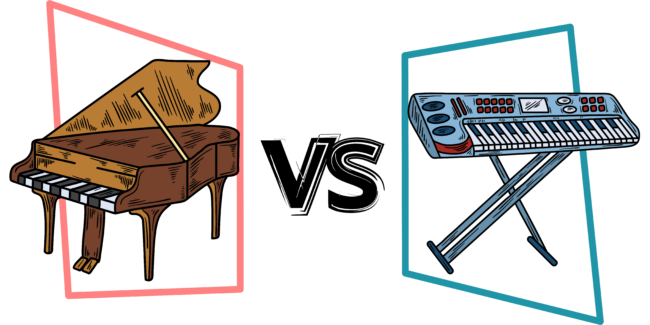
Find out if a digital piano or acoustic piano is best suited for an amateur looking to learn how to play.
We all have a common idea of a piano. Most people think of the traditional grand piano like the one Beethoven played.
However, there are a lot of different digital pianos and acoustic pianos on the market.
As a beginner, buying a grandiose piano may not be ideal. The truth is, not everyone should buy a classical piano. There are tons of alternatives that can still provide you with a fun and fulfilling experience.
It’s just about knowing what suits your needs.
So the team at JoyTunes put together a breakdown of digital pianos versus acoustic pianos.
The main differences between digital piano and acoustic piano.
The acoustic piano was invented at the beginning of the 18th century in Italy – by Bartolomeo Cristofori. As for the digital piano, it came much later in 1979 at the hands of Wil Decker.
The acoustic piano is a stringed percussion instrument in which soft-coated hammers strike steel strings. The digital piano merely plays recordings of a real acoustic piano – but it has perks.
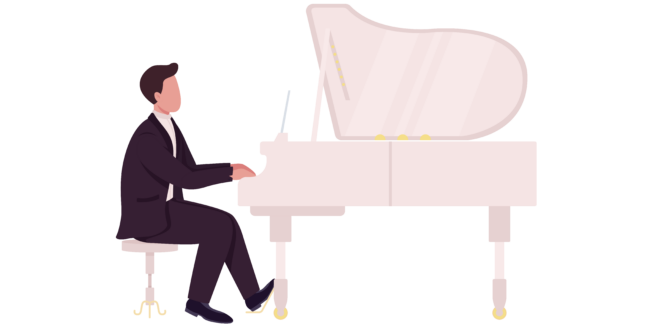
Many qualities like appearance, sounds, utilities, and price distinguish the acoustic piano from a digital piano. You can learn about the differences between digital and acoustic pianos here.
Sound.
Perhaps the main difference between an acoustic and a digital piano is the mechanism that generates sound.
When pressing down on the key, the mechanism makes a felt-covered hammer strike steel-wired strings on the acoustic piano, producing that clean, organic sound that we all love.
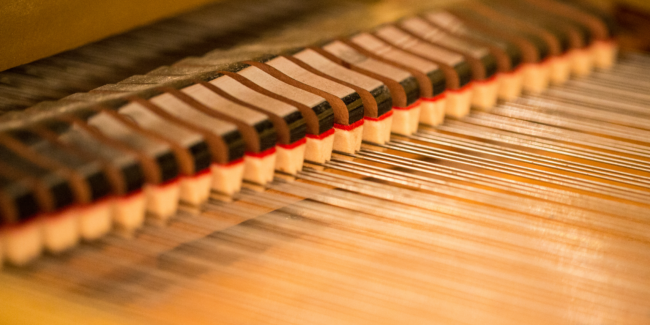
On the other hand, the digital piano uses sensors that trigger by pressing the keys. The sound comes out from built-in speakers or through headphones.
Let’s take a closer look.
Acoustic Piano
The acoustic piano is a beautiful and sophisticated work of art that produces rich sounds.
The weighted keys allow the pianist to be far more expressive when playing. With high touch sensitivity, the strength or softness that you apply to the keys affects the tone and longevity of the sound.
Maintaining the sound quality requires regular tuning. There are countless parts in an acoustic piano that need readjusting and tightening to enjoy a crisp and quality sound.
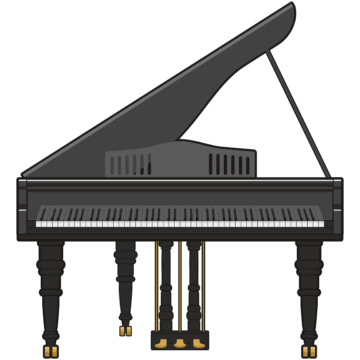
Digital Piano
Sound technology has come a long way. While fully replicating the sounds of an acoustic piano is still out of reach, a digital piano is quite capable of producing sounds that please the ear.
Digital pianos also offer an array of sound settings to play with. You can even plug in headphones for a more private and discreet practice session.
While the digital piano offers diverse sound options, the sound quality is not on the same level as an acoustic piano.
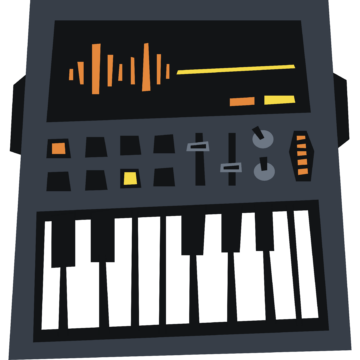
Maintenance.
You must tune an acoustic piano and keep it in a cool, dry environment because humidity messes with the tuning. Digital pianos require almost no maintenance other than the occasional cleaning.
Price.
Acoustic pianos tend to be pricier, starting from $1000-3000 for a low-to-mid-tier instrument. That’s because of the materials used, such as quality wood (maple, for instance), steel strings, weighted keys, and a unique shape.
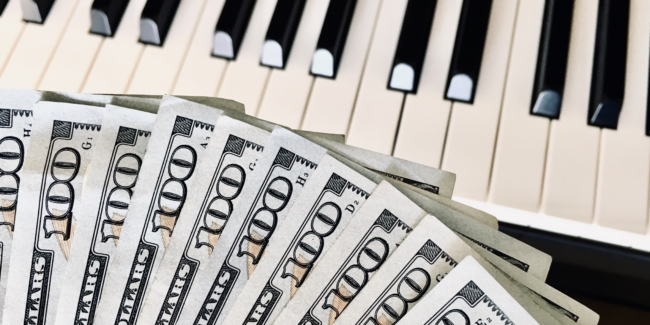
However, if you treat it properly, an acoustic piano may appreciate over time, increasing the resale value.
A digital piano is, comparably, much cheaper. You can find a low to mid-tier digital piano for about $200 to $600.
With technology transforming at an exponential rate, the value of a digital piano depreciates over time.
Space required.
While acoustic pianos are aesthetic masterpieces, they require more space. The materials in an acoustic piano that allow them to create the sounds make the instrument much larger and heavier – making it difficult to move.
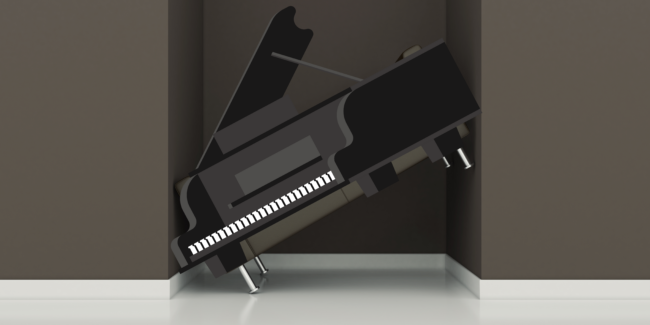
Additionally, you must regulate the environment which houses the piano. Ideally, keep your instrument in a space that maintains a temperature of around 20 degrees celsius.
A digital piano requires much less space and is easy to store! They generally come with a foldable stand, making them ideal if you have limited space and want to bring them around.
Which piano should you buy based on the space required
There are many factors to account for when purchasing a piano. However, if space is a determining factor, the answer is simple.
An acoustic piano is excellent if you have ample space and a consistent temperature.
If you have limited space and need an easy instrument to store and transport, the digital piano is for you.
Music genre.
If you love the sounds of classical music and want to create some of your own, the acoustic piano is the ideal choice. The acoustic piano’s sounds and delicate touch are perfect companions for other classical instruments.
Digital pianos allow musicians to create and add to music genres such as Pop, Rock, and Funk. They adapt perfectly to modern instruments using diverse sounds and an electronic sound system.
Which piano should you buy based on the music genre?
It ultimately comes down to your taste in music. If you prefer creating classical sounds and replicating the music played by the greats – the acoustic piano is the right choice.
The digital piano is ideal for you if you prefer multiple sound options with a modern feel.
Beginner or intermediate.
Acoustic pianos are better for intermediate to advanced players. Their expressive potential is much vaster in this instrument. However, it’s hard to make the most of it as a beginner.
It’s better to learn on an affordable instrument that’s easy to play until you increase your skills.
Digital pianos are great for beginners and intermediate players alike! There’s a range of sound settings to play on, making these instruments more diverse.
There’s also a general versatility that the digital piano has, which its acoustic counterpart lacks. Modern digital pianos allow plugging in headphones, computers, tablets, phones, and volume control and can also be portable.
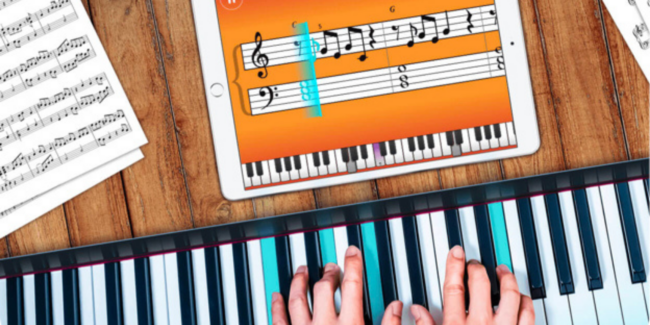
It’s important to choose the right piano that suits your needs. You need to consider the qualities that you deem valuable – like how portable your instrument is, the sounds it makes, and how much space you have to store it.
Ultimately, you want to be happy with your decision. You make your piano learning journey motivating and fun by thinking about what matters to you.
Speaking of learning the piano, check out this amazing app. You’ll be playing the songs you love in no time!






